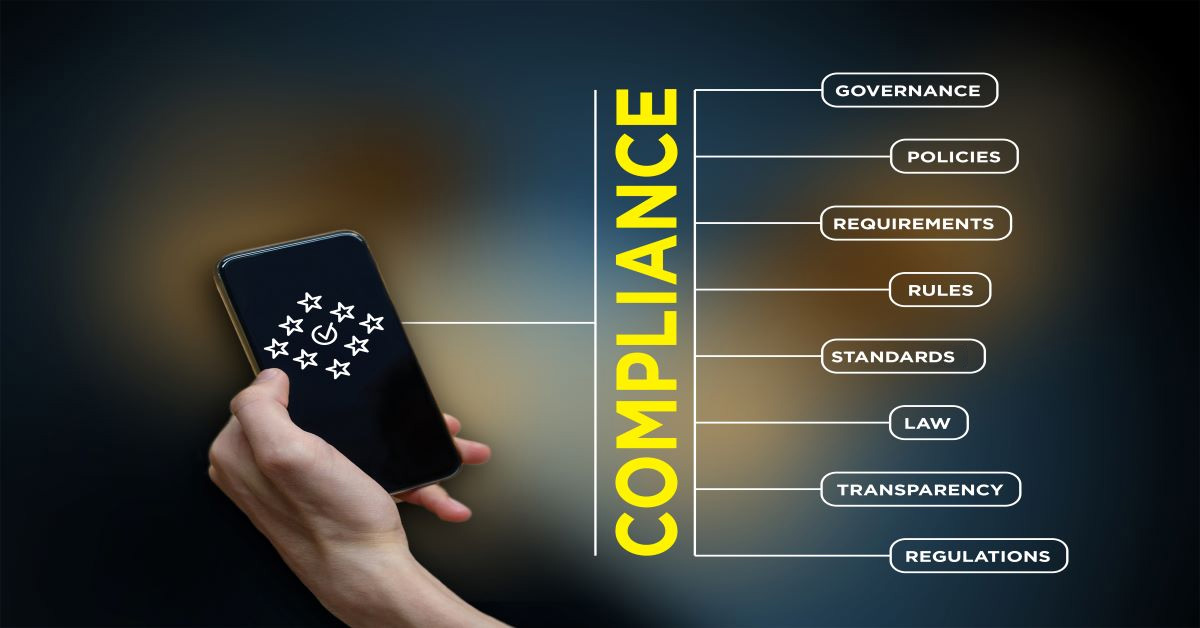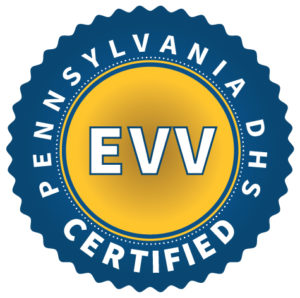
12 May Staying Above 85%: Navigating Pennsylvania’s Latest EVV Requirements
The latest on electronic visit verification in requirements in Pennsylvania
As of January 1, 2025, Pennsylvania home care agencies must meet updated Electronic Visit Verification (EVV) compliance requirements to continue delivering Medicaid-funded services. The Pennsylvania Department of Human Services (DHS) now mandates that at least 85% of all Personal Care Services (PCS) and Home Health Care Services (HHCS) visits be automatically verified using approved EVV technology.
Key EVV Compliance Rules for 2025
- Auto-Verification Requirement: Visits must be verified through an EVV system for Pennsylvania that supports GPS-enabled mobile apps or landline telephony. Manual edits and non-compliant verification methods like cell phone telephony can negatively impact your compliance rate.
- Mandatory Data Elements: Each visit must capture six specific data points — service type, date, time in/out, caregiver identity, recipient identity, and service location.
- Enforcement: Agencies that fall below the 85% threshold for three consecutive months may face corrective action plans or possible contract termination.
How to Stay Compliant
- Upgrade Your Tools: Use a home care software for Pennsylvania that fully integrates with DHS’s aggregator and supports real-time auto-verification.
- Train Your Staff: Ensure caregivers understand how to use the EVV system correctly to reduce errors and manual corrections.
- Track Your Metrics: Monitor your agency’s compliance rates regularly to catch problems early.
- Engage with DHS Resources: Take advantage of state-provided training sessions, collaborative events, and technical support to stay ahead of changes.
What are the dangers of non-compliance with Pennsylvania EVV requirements?
Homecare agencies operating in the state of Pennsylvania should go the extra mile to comply with the state’s Electronic Visit Verification (EVV) requirements to ensure accurate documentation of Medicaid-funded personal care and home health services. Non-compliance can lead to several significant and sometimes severe penalties including:
- Possible Denial of Medicaid Payments
Agencies that fail to meet the state’s electronic visit verification requirements may have their Medicaid claims denied. This includes instances where required visit data is missing or inaccurate, which can directly impact and delay reimbursement for services provided.
- Possible Suspension from Medicaid Programs
Documented repeat non-compliance could result in the suspension or termination of an agency’s enrollment in Medicaid or other government healthcare programs. This is an action that would effectively bar an agency from receiving payments for services under these programs.
- Increasing Financial Penalties
The Pennsylvania Department of Human Services (DHS) reserves the right to impose fines on agencies that do not adhere to EVV mandates. These fines can vary based on the severity and number of violations.
- Possible license revocation
Homecare agencies could face the possibility of having their license revoked. This step could be implemented when non-compliance indicates a significant risk to client care or program integrity.
- An increase in direct corrective actions
Agencies that do not meet compliance thresholds could be subjected to additional monitoring, mandatory training, or technical assistance interventions. Specifically for the announced requirement that as of January 1, 2025, the state requires that at least 85% of EVV records be verified without manual edits, a failure to meet this benchmark could trigger swift corrective action.
- Damage to your agency’s standing
In addition to the prior listed penalties, non-compliance can do great damage to an agency’s reputation, which could lead to a loss of client trust and a reduction in business. Audits and investigations stemming from electronic visit verifications issues can further exacerbate this damage.
To avoid these penalties, agencies should invest in reliable EVV systems, ensure staff are adequately trained, and regularly monitor compliance metrics. Staying informed about regulatory updates from the Pennsylvania DHS and promptly addressing any identified issues are also crucial steps in maintaining compliance.
By aligning your operations with Pennsylvania’s latest EVV standards, your agency can maintain compliance, improve efficiency, and focus on delivering high-quality care.
Explore Additional Alora Resources & Industry Insights
Home Health Technology | Thought Leadership Blogs | Podcasts and Vlogs | Whitepapers
 Alora is a certified alternate EVV vendor for Pennsylvania, and the most trusted home health care software for Pennsylvania. Why just get by when you can THRIVE with a powerful EVV solution that is part of a complete agency management system, Alora.
Alora is a certified alternate EVV vendor for Pennsylvania, and the most trusted home health care software for Pennsylvania. Why just get by when you can THRIVE with a powerful EVV solution that is part of a complete agency management system, Alora.


No Comments